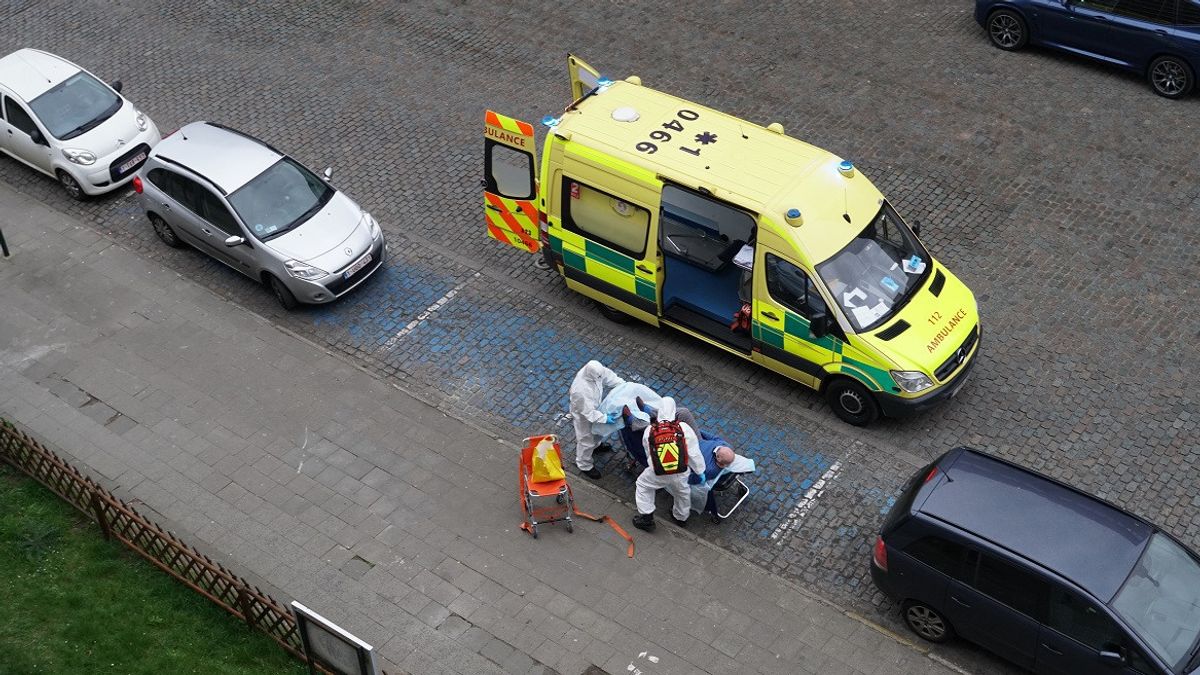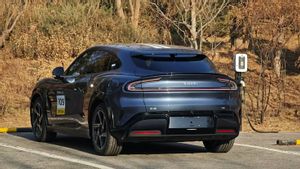JAKARTA - South Africa's Health Minister on Thursday announced the discovery of a new coronavirus variant, which appears to be spreading rapidly in parts of the country.
"Initially it looked like some cluster outbreak, but since yesterday, indications have come from our scientists from the Genomic Surveillance Network that they are observing a new variant," Health Secretary Joe Phaahla said, citing CNN November 26.
He said it was not yet clear where the variant, currently referred to as B.1.1.529, first appeared. So far, the variant has been detected in South Africa, Botswana and in a traveler to Hong Kong from South Africa, Phaahla added.
During a press briefing, genomics scientists said the variant had an unusually high number of mutations, with more than 30 key spike proteins, structures that viruses use to get into the cells they attack.
Professor Tulio de Oliveira, director of the Center for Epidemic Response and Innovation, said: "The variant has more mutations than we anticipated, is spreading very rapidly and we expect to see stress in the health system in the future.
He advised the public to "try to avoid super-spread events."
Officials also expressed concern that mutations could result in immune evasion and increased transmission of the virus, but added it was too early to say what impact mutations would have on vaccine efficacy.
More research also needs to be done to understand the clinical severity of the variant compared to earlier variants, officials said.
"The full significance of this variant is still uncertain and the best tool we have is a vaccine, said De Oliveira, adding laboratory studies still need to be done to test vaccines and antibody evasion.
On Friday, South African officials will brief the World Health Organization (WHO), which has classified B.1.1529 as a "monitoring variant" with possible nicknames for 'Greek variants' such as Alpha and Delta variants.
South Africa, like much of the region, has suffered through three significant waves of COVID-19 since the start of the pandemic. While the number of new infections across the country is now still relatively low and the positive rate is under 5 percent, public health officials have been expecting a fourth wave due to slow absorption of the vaccine.
"They gave us concern that this virus may have increased transmission, increasing the ability to spread from person to person, but may also be able to overcome part of the immune system," said Prof Richard Lessells, from the University of KwaZulu-Natal in South Africa, citing the BBC.
It's too early to draw clear conclusions, but there are already signs that cause concern.
There are 77 fully confirmed cases in South Africa's Gauteng province, four in Botswana and one in Hong Kong (directly linked to travel from South Africa). However, there are hints that the variant has spread more widely.
This variant appears to provide a unique result (known as the dropout S-gene) in standardized tests and which can be used to track variants without performing a complete genetic analysis.
That suggests 90 per cent of cases in Gauteng may already be this variant and may already be present in most provinces in South Africa.
However, this variant doesn't yet tell us whether it spreads faster than the Delta variant, whether it's more severe or to what extent it can evade the immune protection that comes from vaccination.
It also doesn't tell us how well it will spread in countries with much higher vaccination rates, than 24 percent in fully vaccinated South Africa, even though a large number of people in the country have contracted COVID-19.
The English, Chinese, Japanese, Arabic, and French versions are automatically generated by the AI. So there may still be inaccuracies in translating, please always see Indonesian as our main language. (system supported by DigitalSiber.id)













